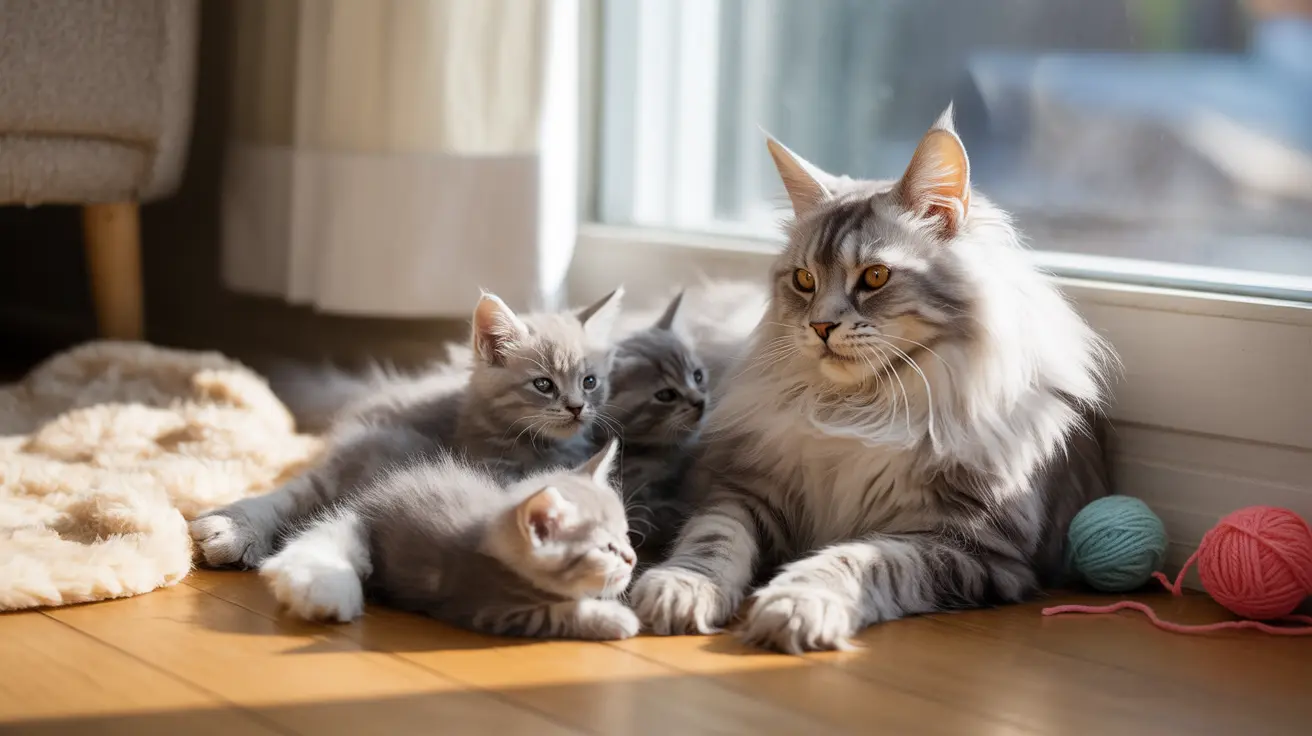Understanding Cat Milk Production
When your cat is nursing kittens, ensuring adequate milk production is crucial for their survival and healthy development. Mother cats, also known as queens, naturally produce milk after giving birth, but sometimes they may need additional support to maintain optimal lactation levels.
Whether you're a cat breeder, foster parent, or your cat has recently given birth, understanding how to stimulate and maintain healthy milk production can make a significant difference in the wellbeing of both mother and kittens.
Nutrition: The Foundation of Healthy Milk Production
A nursing cat requires significantly more calories and nutrients than usual to produce adequate milk. During peak lactation, queens may need up to four times their normal caloric intake.
- High-quality kitten food (higher in calories and nutrients)
- Wet food mixed with dry kibble
- Small, frequent meals throughout the day
- Fresh protein sources like cooked chicken or fish
Essential Nutrients for Lactation
- High-quality protein
- Essential fatty acids
- Calcium and phosphorus
- Vitamins A, D, and E
- B-complex vitamins
Hydration: Critical for Milk Supply
Proper hydration is essential for milk production. A nursing cat needs significantly more water than usual to maintain her milk supply.
- Provide multiple fresh water sources
- Use pet fountains to encourage drinking
- Add water to wet food
- Monitor water bowl cleanliness
Creating the Optimal Environment
Environmental factors significantly impact milk production. Stress can inhibit lactation, so creating a calm, comfortable space is essential.
- Quiet, private nursing area
- Comfortable temperature (around 72°F)
- Clean bedding
- Limited visitor access
- Minimal household disruptions
Medical Support and Supplements
If natural methods aren't sufficient, veterinary intervention may be necessary. Your vet might recommend:
- Prescription medications to stimulate lactation
- Vitamin supplements
- Herbal supplements (under veterinary guidance)
- Regular health monitoring
Monitoring Milk Production
Watch for these signs of healthy milk production:
- Contented, sleeping kittens after nursing
- Steady weight gain in kittens
- Warm, full mammary glands
- Regular nursing sessions
- Normal kitten activity levels
When to Seek Veterinary Help
Contact your veterinarian immediately if you notice:
- Kittens crying excessively
- Weight loss or failure to gain weight
- Hot, hard, or painful mammary glands
- Mother cat showing signs of illness
- Decreased appetite in the mother cat
Frequently Asked Questions
How can I naturally increase my cat's milk production through diet and hydration?
Focus on providing high-quality kitten food, frequent meals, and constant access to fresh water. Include wet food in the diet and consider adding nutrient-rich supplements recommended by your veterinarian.
What veterinary treatments or supplements are safe to stimulate lactation in nursing cats?
Veterinarians may prescribe medications like metoclopramide or domperidone to stimulate milk production. Always consult your vet before using any supplements or medications.
How does environmental stress affect a mother cat's milk supply and what can I do to reduce it?
Stress can significantly decrease milk production. Create a quiet, private space for nursing, minimize disruptions, and maintain a consistent routine to help reduce stress levels.
When should I start supplementing with kitten milk replacer if my cat isn't producing enough milk?
Begin supplementing if kittens show signs of hunger after nursing, aren't gaining weight, or cry excessively. Don't wait more than 12 hours if you suspect insufficient milk production.
What are the signs of low milk production or mastitis in a lactating cat and how should I respond?
Signs include crying kittens, weight loss, hard or hot mammary glands, and maternal distress. Contact your veterinarian immediately if you notice these symptoms, as prompt treatment is essential.
Conclusion
Successful milk production in nursing cats requires a combination of proper nutrition, hydration, environmental management, and careful monitoring. By following these guidelines and working closely with your veterinarian, you can help ensure optimal milk production for your nursing cat and healthy development of her kittens.






